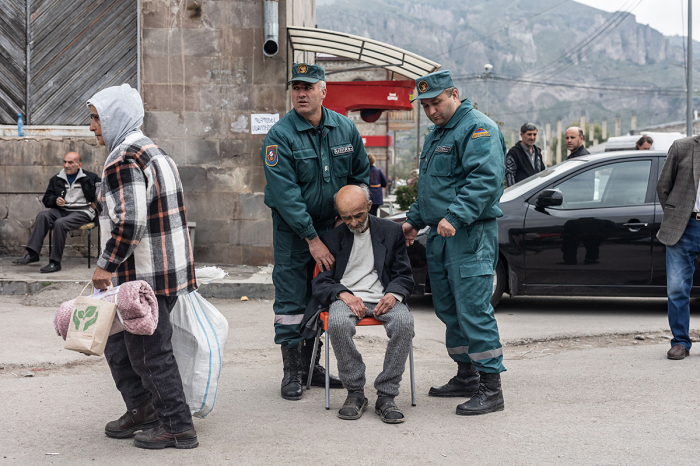
Azerbaijan has filed a formal complaint with the U.N. Committee on NGOs against Christian Solidarity International (CSI), a Switzerland-based human rights group with consultative status, over its advocacy for Armenian Christians displaced from Nagorno Karabakh.
The permanent mission of Azerbaijan to the U.N. has accused CSI of engaging in “politically motivated hostile actions” and requested a review of the organization’s compliance with U.N. regulations.
The committee is scheduled to discuss the complaint on Friday, a source familiar with the proceedings told The Christian Post, calling the action an “attempt to silence” the Christian group.
Azerbaijan’s complaint follows repeated interventions by CSI at the U.N. Human Rights Council, where the group has raised concerns about the treatment of Armenians from Nagorno Karabakh — particularly the 2023 military operation that forced nearly 120,000 ethnic Armenians to flee — and related human rights violations that are allegedly ongoing.
CSI has also called for the safe return of Armenians to Nagorno Karabakh and raised alarm about the conditions of what it describes as Armenian hostages in Baku. The 23 detainees, including former high-ranking officials, are allegedly being tried behind closed doors without access to impartial legal counsel or the ability to review evidence against them, according to information published on CSI’s website.
In its filing, Azerbaijan claimed CSI had used “invalid or fictitious names” by referring to the region as “Nagorno Karabakh” and accused the group of displaying a “distorted map” by outlining the boundaries of the former Nagorno Karabakh Autonomous Oblast.
Azerbaijan also accused CSI of spreading “distorted facts” about the ongoing trials of 16 Armenian detainees being held in Baku. In addition to those on trial, seven others have already been convicted and are serving prison sentences ranging from 15 to 20 years on terrorism-related charges.
A provisional order from the International Court of Justice, issued in November 2023, stated: “Azerbaijan shall refrain from taking any actions directly or indirectly aimed at or having the effect of displacing the remaining ethnic Armenians from Nagorno-Karabakh, or preventing the safe and expeditious return to their homes of persons displaced in the course of the recent military attack including those who have fled to Armenia or third States, while permitting those who wish to leave Nagorno-Karabakh to do so without any hindrance.”
In its report on Azerbaijan published on May 10, 2024, the U.N. Committee Against Torture stated it was “alarmed by alleged extra-judicial killings, torture, and ill-treatment of national and ethnic Armenians during armed conflict and anti-terrorism operations, and the perceived lack of investigations and prosecutions of these allegations.”
The committee “also expressed concerns over the continued detention of 23 individuals of Armenian ethnic or national origin for terrorism and related offences.”
The report further noted: “The Committee was concerned about allegations that human rights defenders and journalists continue to face physical and judicial harassment, and in some cases, are subjected to torture and ill-treatment in Azerbaijan. It was troubled by the shrinking civic space in the country, recalling that a free and vibrant civil society was key to prevention of torture and ill-treatment.”
On March 3, the U.N. High Commissioner for Human Rights Volker Türk called for the immediate release of all those “arbitrarily” detained in Azerbaijan, including ethnic Armenians.
Nagorno Karabakh, while predominantly Armenian in population and self-governed since 1991, has been internationally recognized as part of Azerbaijan. The 2023 military offensive marked Baku’s move to assert full control over the region.
Though Armenia backed its autonomy, geopolitical interests, including Turkey’s support, allowed Azerbaijan’s takeover of the region and influenced the weak global response to its humanitarian impact.
For many Armenians, the loss is deeply felt — Nagorno Karabakh remains part of their ancestral homeland, with centuries-old churches and monuments central to Armenian identity and history.


















